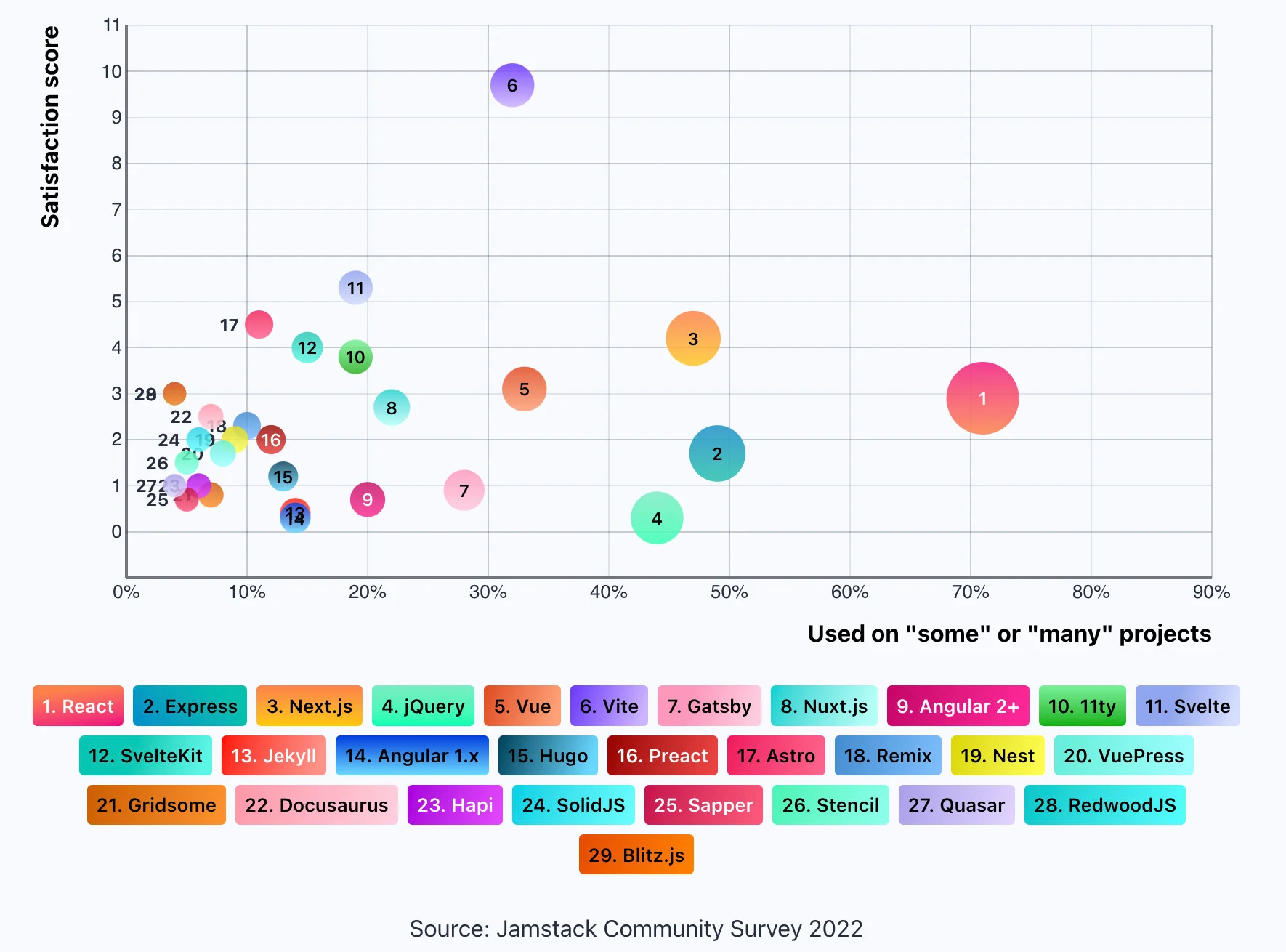CXBOS Insights
Your daily dose of news, insights, and information.
JavaScript Frameworks: Choose Your Fighter
Unleash your coding potential! Discover the ultimate showdown of JavaScript frameworks and find your perfect match today!
Top JavaScript Frameworks of 2023: Which One Fits Your Project?
As we dive into 2023, the landscape of JavaScript frameworks continues to evolve, offering developers a multitude of options to choose from. Some of the top contenders this year include React, Vue.js, and Angular. Each of these frameworks comes with its unique features and benefits, making them suitable for various types of projects. For instance, React is renowned for its component-based architecture and is ideal for building complex user interfaces, while Vue.js is celebrated for its simplicity and flexibility, making it perfect for small to medium-sized applications.
When selecting the right framework for your project, consider factors such as project size, team expertise, and long-term maintenance. A comparison of each framework's documentation, support community, and performance metrics can also assist in making an informed decision. Below is a quick summary of each framework's strengths:
- React: Best for interactive UIs and scalability.
- Vue.js: Ideal for rapid development and ease of integration.
- Angular: Suitable for large-scale applications with robust features.

Understanding the Key Differences Between React, Angular, and Vue.js
React, Angular, and Vue.js are three of the most popular JavaScript frameworks for building dynamic web applications. Each of these frameworks has its own unique features and philosophies, making them suitable for different types of projects. React, developed by Facebook, focuses on building user interfaces through a component-based architecture. It is particularly known for its virtual DOM, which enhances performance by minimizing direct manipulation of the DOM. On the other hand, Angular, developed by Google, is a full-fledged framework that offers a comprehensive set of tools for building large-scale applications, including two-way data binding and dependency injection. Finally, Vue.js takes a more progressive approach, allowing developers to incrementally adopt its features as needed, making it highly flexible and easy to integrate with existing projects.
When considering React, Angular, and Vue.js, it's crucial to understand their key differences in terms of learning curve, community support, and ecosystem. React is often praised for its simplicity and ease of learning, especially for those familiar with JavaScript, while Angular presents a steeper learning curve due to its vast offering of built-in functionalities. In terms of community support, all three frameworks have robust communities, but React leads with a larger number of third-party libraries and resources. Additionally, the ecosystem varies between them; Vue.js has gained popularity for its gentle learning curve and solid documentation, making it an excellent choice for newcomers to web development. Ultimately, the choice between these frameworks will depend on the specific needs of the project as well as the team's familiarity with each technology.
How to Choose the Right JavaScript Framework for Your Development Needs?
Choosing the right JavaScript framework is crucial for the success of your web development project. With a multitude of options available, it can be overwhelming. Start by assessing your project's specific needs, such as performance requirements, scalability, and the complexity of the user interface. Some of the most popular frameworks are React, Angular, and Vue.js, each with its unique strengths. For instance, if you're looking for a component-based architecture and robust community support, React may be your best bet. On the other hand, if you prefer a comprehensive solution with built-in features, Angular could be the ideal choice.
Once you've identified the type of JavaScript framework that aligns with your project requirements, consider the following factors:
- Learning Curve: Evaluate how easy it is for you and your team to learn and implement the framework.
- Community Support: A vibrant community can provide invaluable resources and troubleshooting help.
- Integration: Ensure the framework integrates well with your existing tools and technology stack.
By taking these factors into account, you can make a more informed decision that will streamline your development process and lead to a successful outcome.